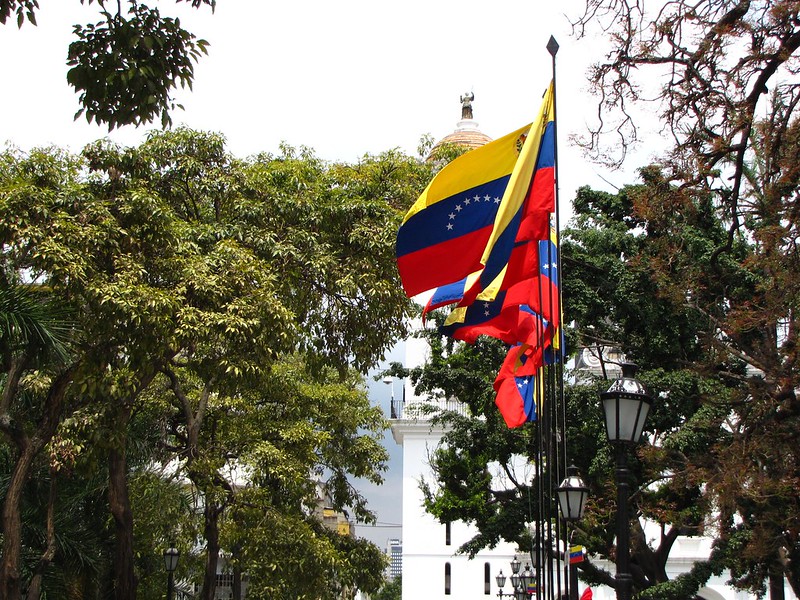Unified International Support is Needed in Venezuela

In December, Nicolás Maduro – who continues to claim Venezuela’s presidency – held illegitimate parliamentary elections to undermine the 2015 democratically-elected National Assembly (NA), whose mandate was set to expire in January 2021. Empowered with a non-legitimate parliament, Maduro today wields control over the democratic opposition led by the Interim Government of Venezuela (IGV) through harassment, prosecution and other attempts to silence its members.
As Venezuela’s humanitarian crisis and human rights abuses intensify, international support for the IGV – which is beginning to wane amongst key players – is needed now more than ever. The restoration of Venezuela’s democracy and the protection of human rights in the country depend on it.
After the outcome of the regime’s sham elections, the opposition-led NA continues to stand as the last remaining democratic institution in Venezuela. The 2015 NA has continued their operations by establishing a Delegated Commission on January 5, comprised of a condensed group of committee presidents responsible for carrying out legislative activities. In response, the regime has thwarted any success of the 2015 NA by imposing restrictions on 35 deputies and alleging false accusations of corruption and organized crime. Furthermore, Maduro has racked up 2,891 crimes against humanity and committed more than 5,094 killings – all while criminalizing international support, attacking hundreds of journalists and censoring dozens of media outlets and civil society organizations.
The fraudulent nature of the 2020 elections is clear, and to be sure, the international community continues to reject the legitimacy of Maduro’s regime. However, because the mandate for the 2015 NA was set to expire in early 2021, key foreign allies such as the European Union, the Lima Group and the Dominican Republic have also withdrawn their recognition of the last democratically-elected body in Venezuela. Though indirectly, this decision ultimately debilitates the opposition and serves to entrench Maduro’s brutal dictatorship.
If more countries continue withdrawing their recognition of the legitimacy of the 2015 NA and the IGV, the opposition’s capacity to advocate for Venezuelans inside and outside the country will deteriorate even further. Bringing an end to the country’s human rights abuses and fostering political freedoms in Venezuela requires more than mere condemnation of Maduro’s regime. A democratic transition in Venezuela relies on the international community’s ability to provide well-coordinated and unified support to the IGV as they fight to restore freedom.
Even with recognitionition of the NA and IGV declining across the international community, over 60 countries (including some from the Lima Group, EU and the U.S) still support the 2015 NA as they continue the fight for free, fair and verifiable elections undaunted. Though NA deputies and their families are at risk, the legislative body has declared that the threat of harassment and persecution will not stop them from denouncing the regime and representing the Venezuelan people. As regional elections approach and democracy continues to decline, IRI deems it necessary for the international community to continue supporting Venezuelans, especially those on the front lines of the democratic opposition, in their fight to restore democracy in the country.
Top